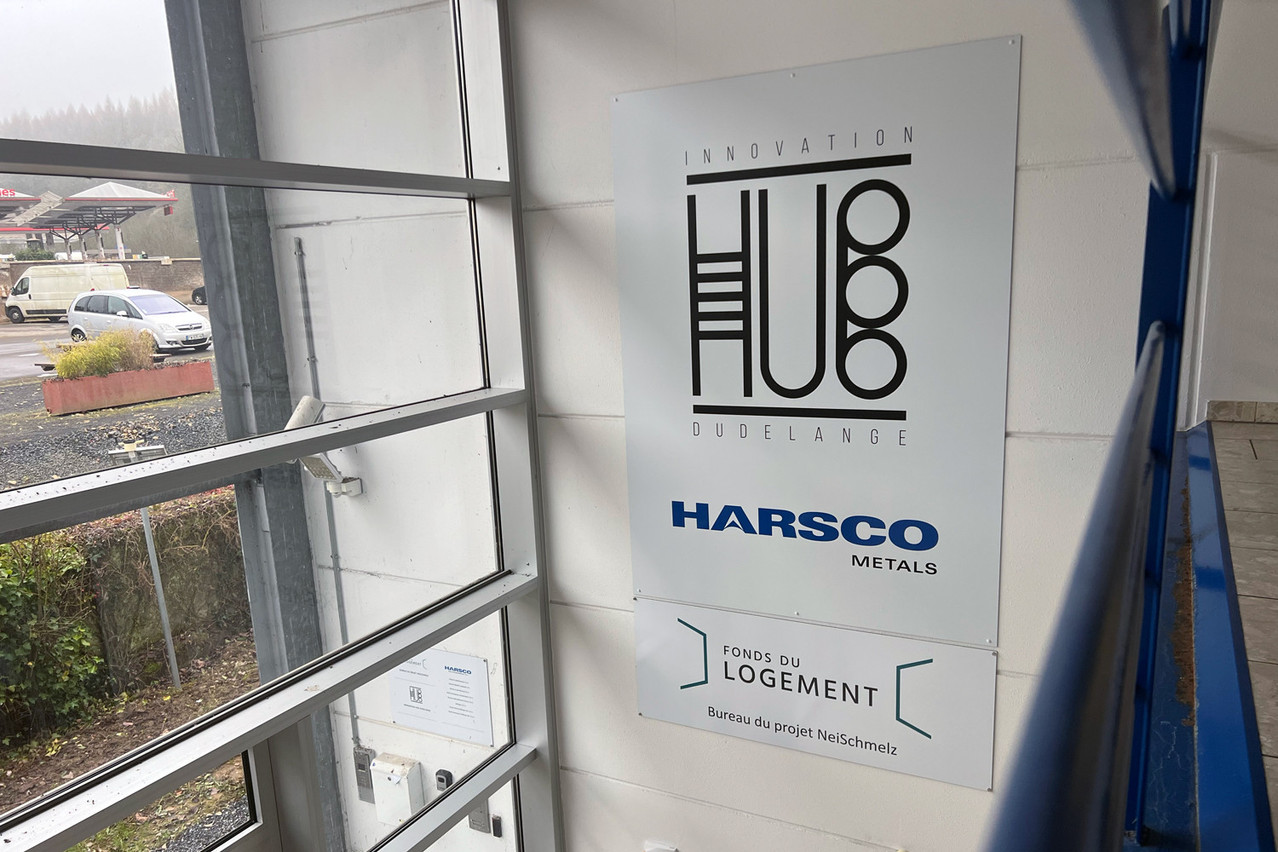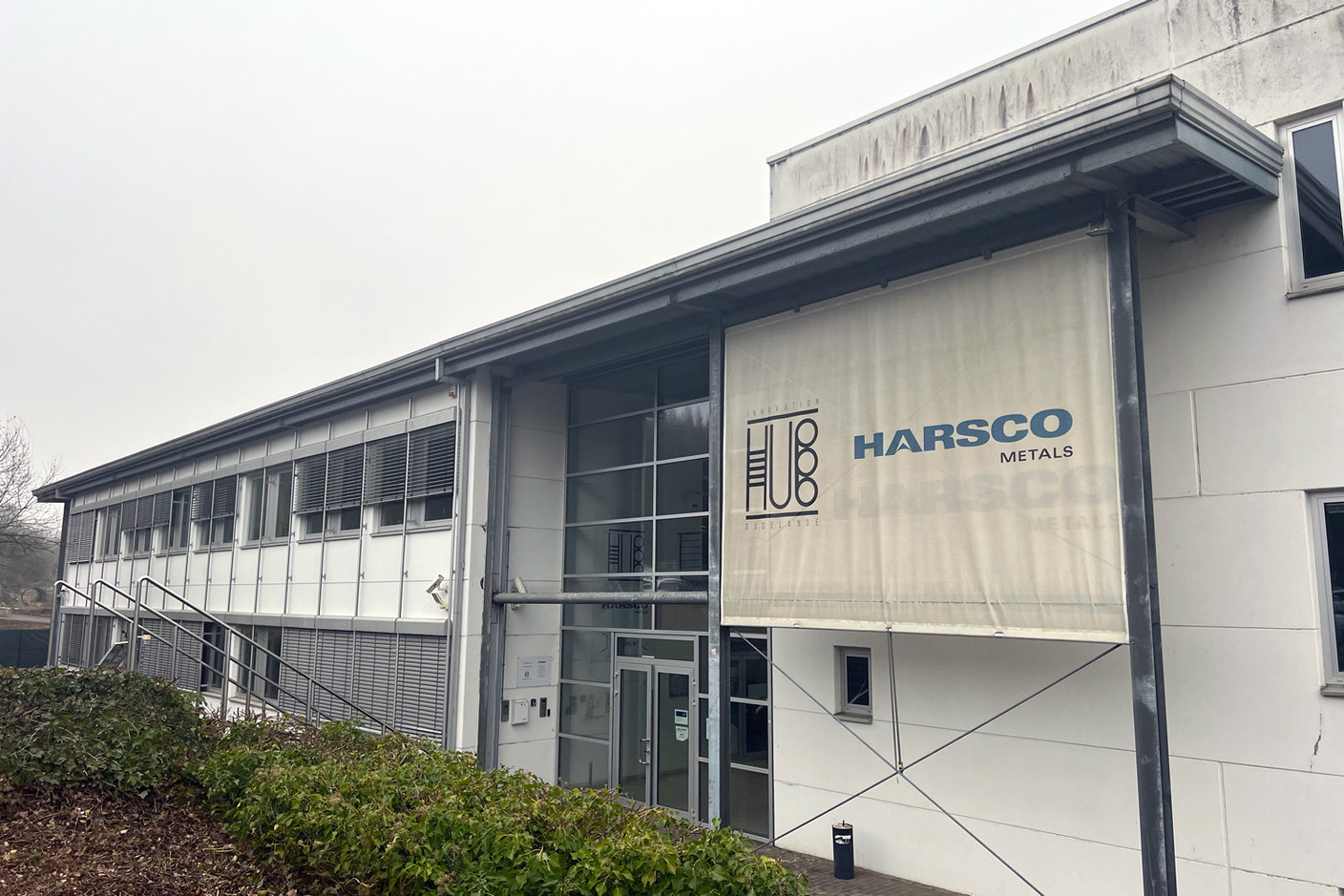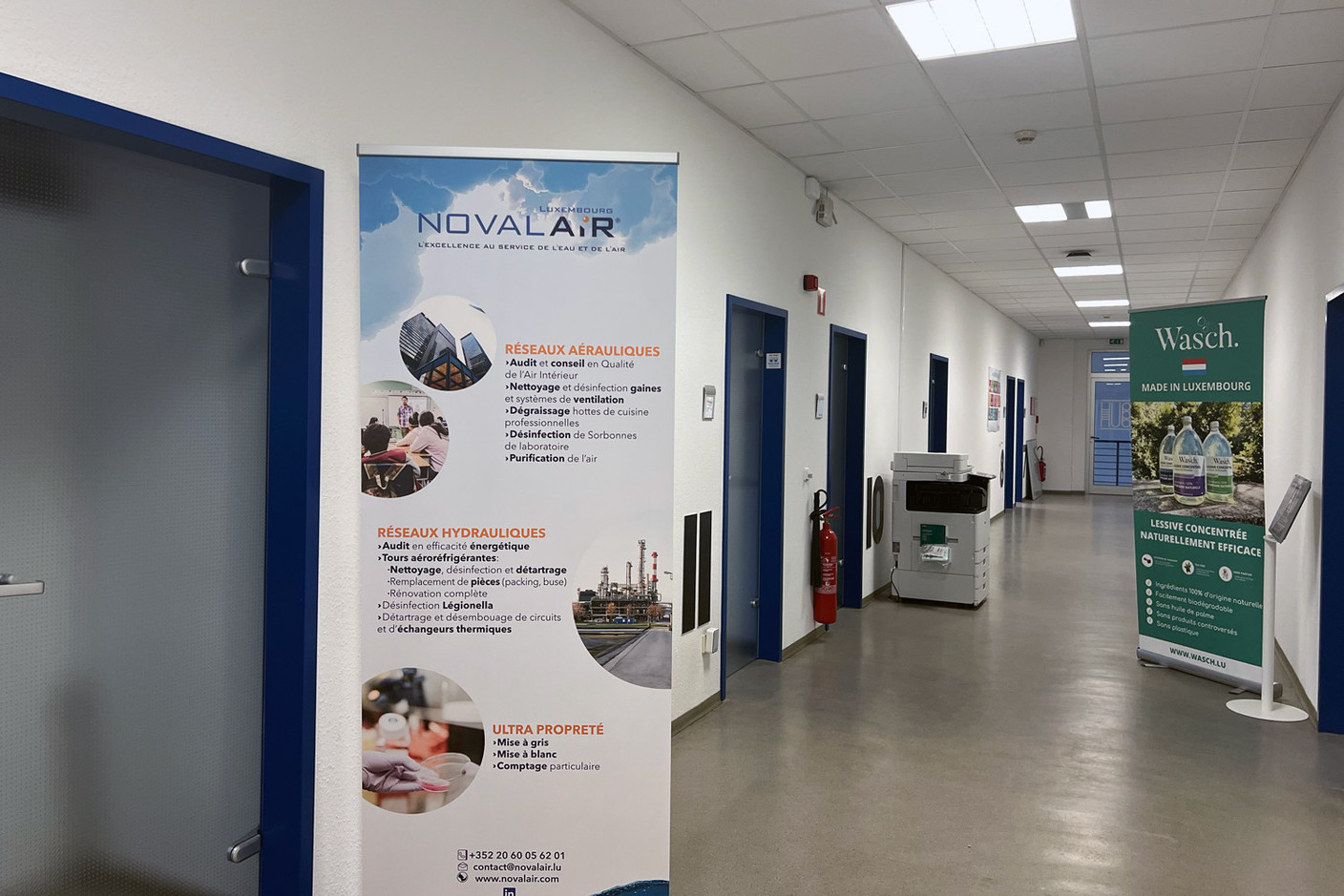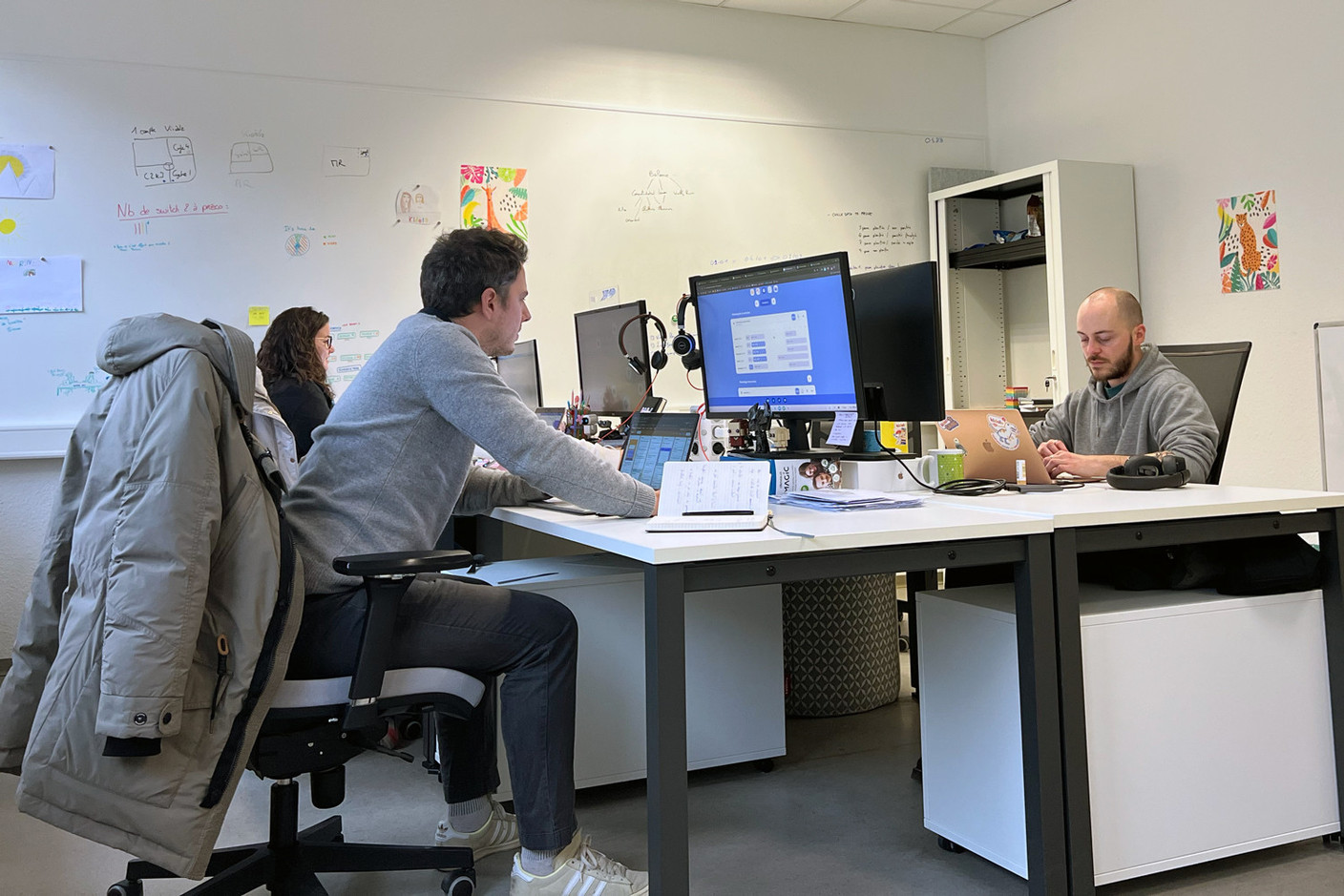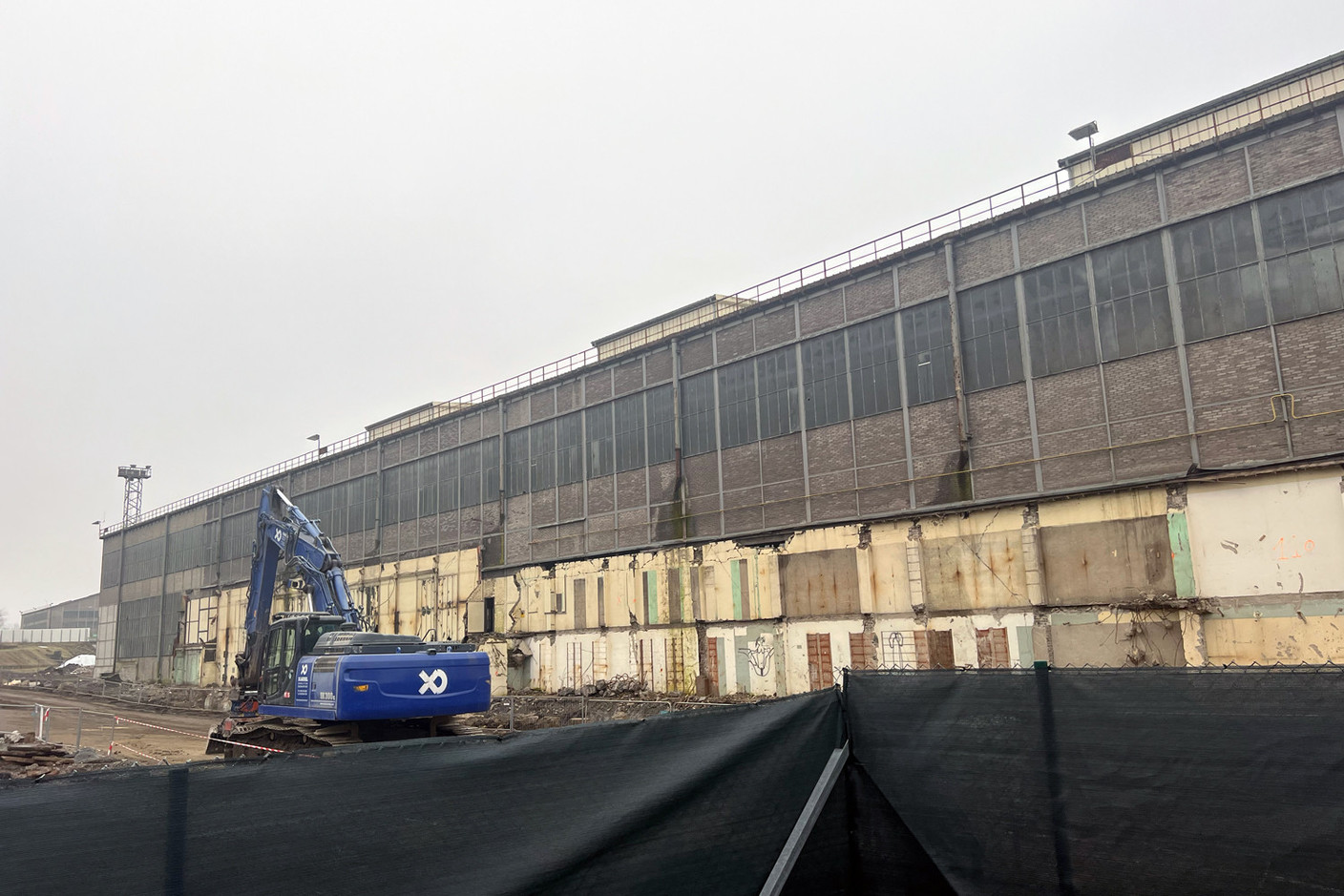(To our readers: the Paperjam editorial team was in Dudelange on Thursday and Friday to meet the political, social and economic players in this municipality of 22,000 inhabitants. This article is part of that 'concentrated' approach. We hope you enjoy reading these articles.)
Since its creation in 2018, the Innovation Hub in Dudelange has been pursuing a dual mission. With the support of Luxinnovation, the ministry of the economy and Technoport, this incubator helps young companies involved in the green transition through the crucial stages of their growth. Its mission is to provide a framework in which to test, refine and validate their ideas on the market and improve the ecological impact of Dudelange and Luxembourg.
Its main role is to help entrepreneurs reach the crucial “market fit” stage, as Martin Guérin, the incubator’s director, explains. “The most important thing is to reach market fit. You have to explore the market, test different sectors, customers and regions to refine your offer.”
To achieve this objective, the Hub offers a range of services: personalised coaching, networking with experts and help with formalising offers. These elements make it easier for customers to make decisions, while strengthening the credibility of incubated startups. Unlike a coworking space, the incubator relies on genuine strategic support to enable companies to develop in a suitable environment.
In addition, the Innovation Hub offers modern infrastructure and privileged access to local networks, encouraging collaboration. For Guérin, “planting the seed in the best possible place” is crucial if startups are to grow effectively. There is therefore no deliberate competition between the country’s various incubators (House of Startups, Technoport, etc.), as each has its own specific characteristics.
A constantly evolving pool of startups
Ten startups are currently in the Dudelange incubator, mainly in the cleantech sector. And in a few weeks, they will be joined by new candidates (as yet undisclosed). Among them, WeThink & WeCare is developing intelligent lighting systems capable of reducing energy consumption by adapting to traffic. But it’s also reinventing waste management by producing strong, environmentally-friendly bin liners from recycled materials from Luxembourg. In a different vein, Kidola offers an application to digitise and simplify the day-to-day management of crèches, which has already been adopted by several local authorities in the country.
Startups are also responding to specific energy efficiency challenges. Novalair has designed robots to clean air ducts, thereby reducing energy costs and the risk of indoor pollution. Geotopar, meanwhile, uses infrared tools to detect heat loss in buildings, making it possible to prioritise renovations effectively. In addition, Luxem offers eco-friendly industrial products, including environmentally-friendly professional cleaners, demonstrating the Hub’s commitment to sustainable solutions. Frontier Connect offers connected solutions for cities, such as sensors integrated into urban infrastructure to monitor pollution or manage waste efficiently.
Newcomers include Visua, which uses artificial intelligence to optimise urban maintenance routes and reduce the carbon footprint of local authorities, and Demain Autrement, which supports businesses and local authorities in their ecological transition.
Some startups, after being incubated, have left the Hub to pursue their growth independently, as their time with the Hub cannot exceed five years. RSS Hydro, which specialises in flood risk modelling using satellite imagery, has made a name for itself by working with a number of local authorities in Luxembourg. Wasch, a biodegradable detergent created by an entrepreneurial couple, is now marketed internationally, a perfect illustration of the incubator’s potential to turn small ideas into big successes.
“The first companies we incubated often go on to grow and, a little more rarely, disappear,” Guérin emphasises. Some have even created their own spinoff, a new company spun off from a startup to develop a specific innovation, like RSS Hydro with Wasdi.
A unique collaboration with the city of Dudelange and the Neischmelz project
What sets the Innovation Hub apart from other structures in Luxembourg is its direct integration with the city of Dudelange. Nearly 80% of the startups work together on municipal projects, whether in waste management, lighting or connected solutions. These synergies mean that innovations can be rapidly validated in the field. Thanks to this proximity, Dudelange benefits from the latest technological advances while strengthening its role as a model city in terms of sustainability. The Neischmelz project, which will run for another ten years, also offers a unique opportunity to implement innovations in real-life conditions.
The year 2024 marked a turning point for the Innovation Hub, with the gradual recovery of startups from the pandemic and the departure of the first mature companies. In terms of infrastructure, the Neischmelz project is making real progress with the start of construction, offering new prospects for growth.
Over the coming years, the incubator aims to increase the number of startups and expand its premises. It also plans to become more involved in the Neischmelz project, integrating innovative technologies into the heart of the urban ecosystem.
This article was originally published in .
